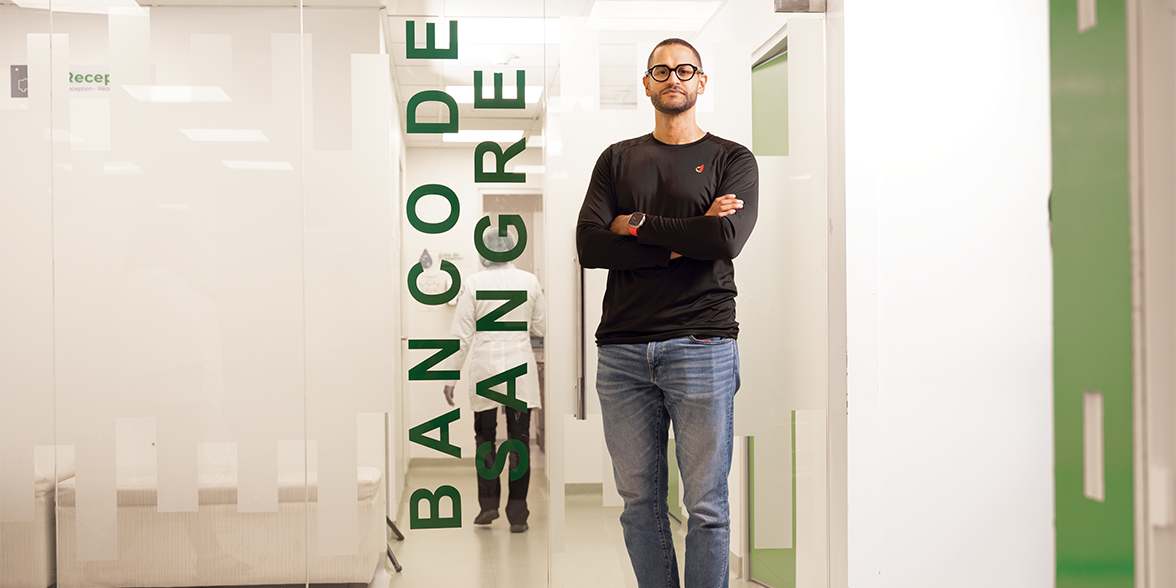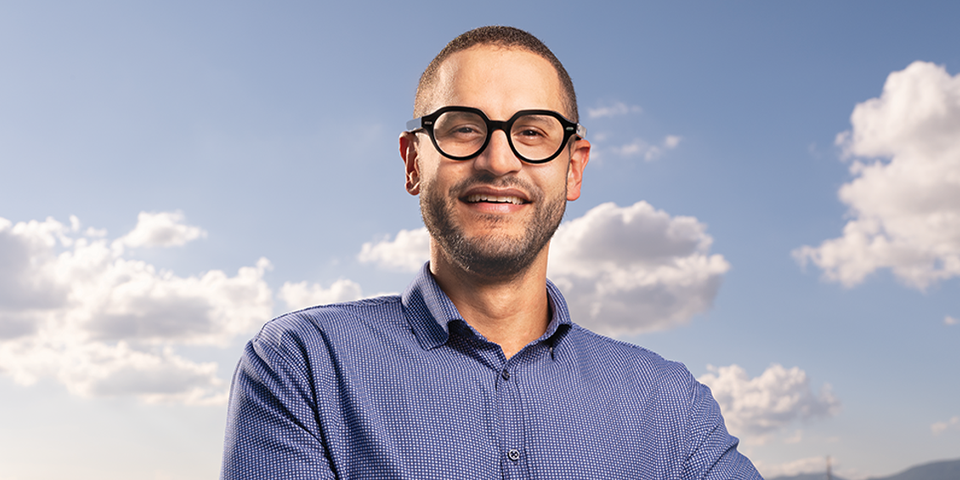BLOG
Amway Hero Awards 2024: Cesar Rodriguez
Many people seek to change themselves, their families, schools or communities. Very few seek to change an entire country or culture. Yet, that is exactly the project that César Rodríguez has taken on.

“When I think about the changemaking we are doing, it’s a great responsibility,” César said. “Because we are working with people’s lives and changing a whole culture. Here in the Dominican Republic, we don’t have the donation culture like in the United States, where people go to donate blood and they feel like they are heroes. That’s something we are working on.”
In 2019, César’s father, a physician, was diagnosed with terminal colon cancer. The diagnosis, in addition to robbing César of his father, would end up changing his life – and the lives of countless other people.
“Toward the end of my dad’s cancer journey, the doctors asked us to give blood,” César said. “Unlike in the United States, where they have donated blood in the hospital, in the Dominican Republic, we have a blood replenishment system. You have to find a donor by yourself and take it to the hospital or clinic so they can give you the blood they have on inventory.”
Luckily, César had the same blood type as his dad and was able to make a donation that improved his father’s quality of life for several weeks. But when the doctors asked for more blood, César couldn’t give again; it was too soon. “That’s when all the feelings came up,” César said. “I just felt, ‘Why aren’t we like other countries? Here, we have to ask and beg people to donate blood in an emergency, when the blood needs to be there when we need it?’ I said, ‘This has to change.’”
Because César’s father was a beloved physician – an OB-GYN who treated many patients for free during his decades of practicing medicine – his family was able to locate another donor through social media. But it broke César’s heart to have to publish his father’s story online. “I found myself wondering, what happens to all of the other people who don’t have that access or resources? And posting online, the privacy is gone. You feel so sad. And then I had this idea of centralizing all the donors in our country.”
In 2020, after’s his father’s death, César found himself in pandemic lockdown, like many people around the world. And he decided to use the extra time, and his software development skills, to build a website that would allow blood seekers and blood donors to effortlessly connect with each other online, across the Dominican Republic. Soon after, he founded a nonprofit, Donantes, and launched the platform he created – donantes.com.do.
“We centralized all the blood donors and platelet donors – and we added breast milk donors – in one map,” César explained. “If you want a donation or you want to donate, you register in the platform. All the information is private. We validate the information against cédula national identity numbers. After you’re registered, you can ask the verified donors in the platform for the donation you need. You just choose what you’re looking for. You can filter by blood type. You then contact a donor near you, and they will receive a notification: ‘Let’s save a life together.”

“
Being a changemaker is a great responsibility, because we are working with people’s lives. That’s the word – responsibility – that I feel the most feel when I think about this project.
César Rodríguez
Building a blood donation database may seem like an odd project for someone in pandemic lockdown, but for César, it was a continuation of the work both his parents had done his whole life. “My mom and dad are both doctors. They were born in poverty, in the countryside, and they studied medicine because they had in their hearts the need to help others,” César said. “I grew up watching them, hearing their stories and tagging along on medical missions during summer vacations. They always told us, ‘Remember where you come from. You have to help people.’”
Today, Donantes operates out of an office in a medical clinic César’s parents founded in Santiago, and it has achieved official nonprofit status, with assistance from the Ministry of Public Health.
Financial support will be key to the success of the platform moving forward. One challenge that Donantes has yet to solve is covering the cost for a blood donation to be cleaned and processed, which insurance doesn’t cover and around 80% of people can’t afford. “That’s one thing we are working on right now, adding fundraising to the platform,” César said. “A lot of people will benefit from that.” He added, “Every day, people ask for the money to pay for the processing of the blood. And so we are continually looking for ways to help.”

